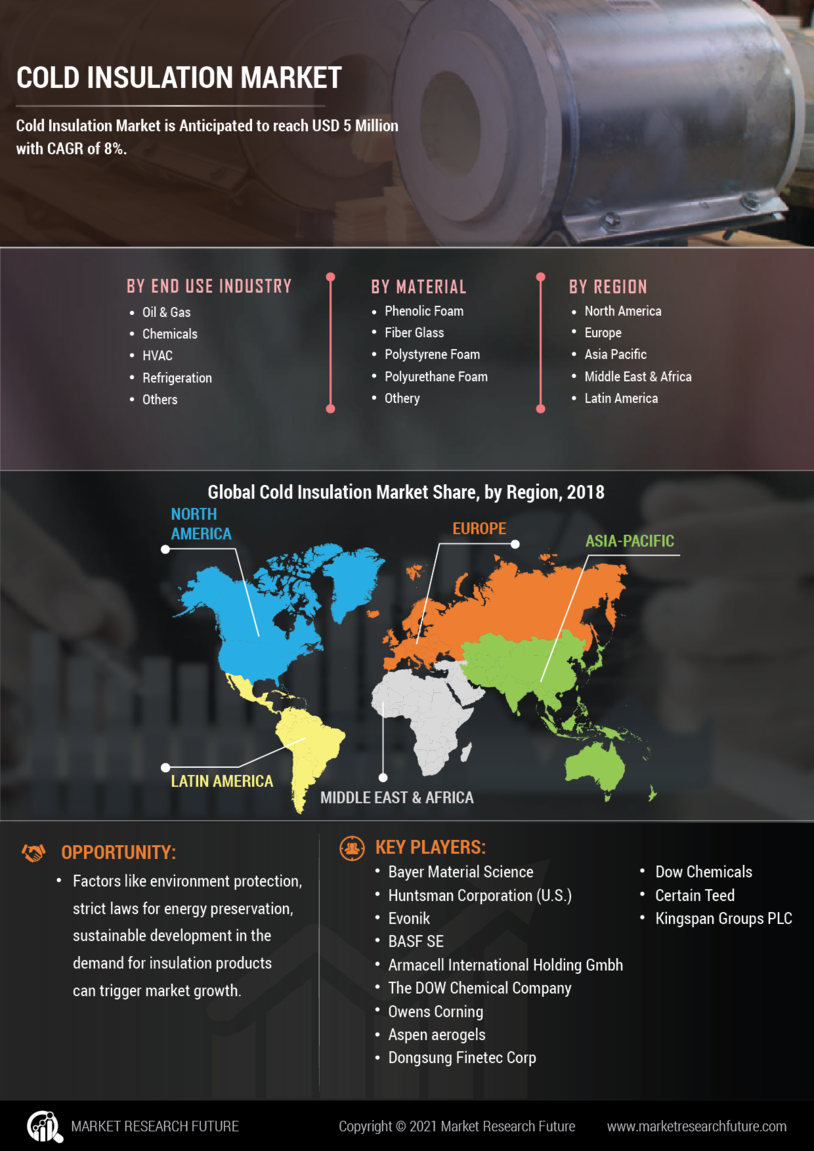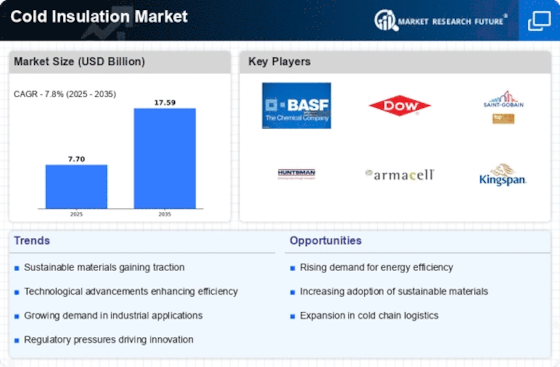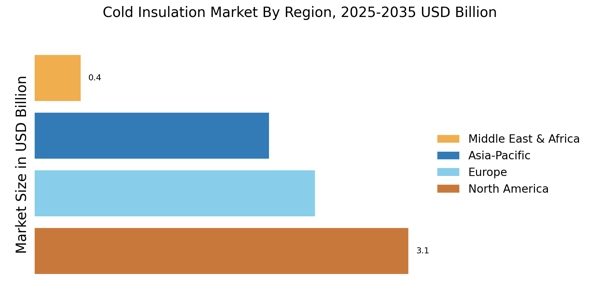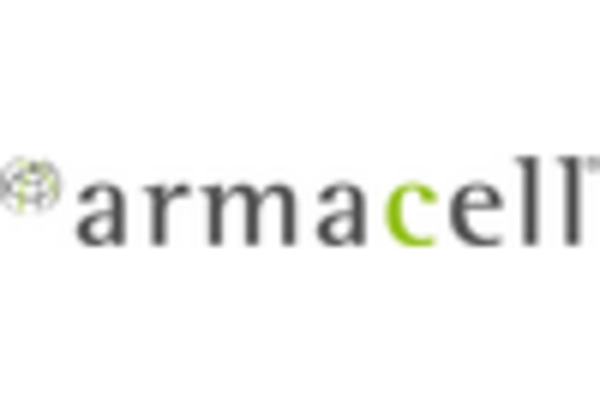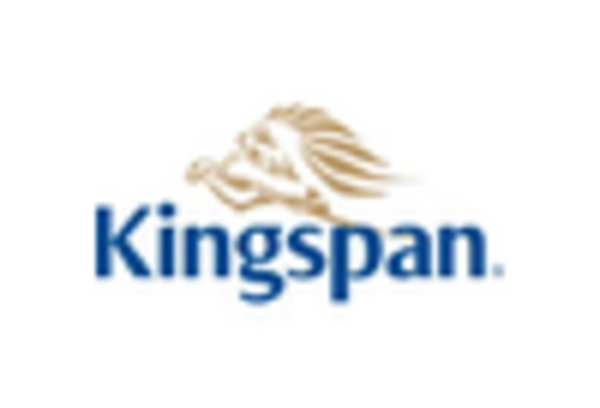Increasing Regulatory Standards
The Cold Insulation Market is experiencing a notable shift due to the implementation of stringent regulatory standards aimed at enhancing energy efficiency and reducing greenhouse gas emissions. Governments across various regions are enacting policies that mandate the use of high-performance insulation materials in construction and industrial applications. This regulatory push not only encourages the adoption of cold insulation solutions but also drives manufacturers to innovate and improve their product offerings. As a result, the market is likely to witness a surge in demand for advanced insulation materials that comply with these regulations, thereby fostering growth in the Cold Insulation Market.
Expansion of Industrial Applications
The Cold Insulation Market is benefiting from the expansion of industrial applications, particularly in sectors such as oil and gas, chemicals, and food processing. These industries require effective insulation solutions to maintain temperature control and ensure operational efficiency. As industrial activities ramp up, the demand for cold insulation materials is likely to increase, driven by the need for reliable thermal management. Furthermore, the integration of cold insulation in new projects and retrofitting existing facilities is expected to contribute to market growth. This trend underscores the critical role of cold insulation in enhancing productivity and safety within the Cold Insulation Market.
Growth in Refrigeration and HVAC Sectors
The Cold Insulation Market is significantly influenced by the expansion of the refrigeration and HVAC sectors. As urbanization continues to rise, the demand for efficient cooling and heating systems is escalating. This trend is particularly evident in developing regions where infrastructure development is underway. According to recent data, the HVAC market is projected to grow at a compound annual growth rate of over 5% in the coming years. Consequently, the increased installation of refrigeration systems and HVAC units necessitates the use of effective cold insulation materials to enhance energy efficiency and reduce operational costs, thereby propelling the Cold Insulation Market forward.
Rising Awareness of Environmental Impact
There is a growing awareness regarding the environmental impact of energy consumption, which is significantly affecting the Cold Insulation Market. Consumers and businesses alike are becoming more conscious of their carbon footprints and are actively seeking solutions that minimize energy usage. This shift in mindset is driving the demand for cold insulation materials that not only provide thermal efficiency but also contribute to sustainability goals. As a result, manufacturers are increasingly focusing on developing eco-friendly insulation products, which is likely to enhance their market position and appeal to environmentally conscious consumers within the Cold Insulation Market.
Technological Advancements in Insulation Materials
The Cold Insulation Market is witnessing a wave of technological advancements that are revolutionizing insulation materials. Innovations such as the development of aerogel and vacuum insulation panels are providing superior thermal performance and space-saving solutions. These advanced materials are gaining traction in various applications, including industrial refrigeration and cryogenic storage, where traditional insulation may fall short. The introduction of these cutting-edge technologies is expected to create new opportunities for growth within the Cold Insulation Market, as they offer enhanced efficiency and performance that meet the evolving needs of consumers and industries.
